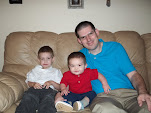Sure it's possible that the waiters and waitresses can't carry a tune. But it's much more likely that the management realizes that "Happy Birthday to You" is still under copyright (until 2030) and they'd rather sing (or chant) something else than worry about paying royalties for the modern classic "Happy Birthday to You".
According to snopes.com:
Does this mean that everyone who warbles "Happy Birthday to You" to family members at birthday parties is engaging in copyright infringement if they fail to obtain permission from or pay royalties to the song's publisher? No. Royalties are due, of course, for commercial uses of the song, such as playing or singing it for profit, using it in movies, television programs, and stage shows, or incorporating it into musical products such as watches and greeting cards; as well, royalties are due for public performance, defined by copyright law as performances which occur "at a place open to the public, or at any place where a substantial number of persons outside of a normal circle of a family and its social acquaintances is gathered." So, crooning "Happy Birthday to You" to family members and friends at home is fine, but performing a copyrighted work in a public setting such as a restaurant or a sports arena technically requires a license from ASCAP or the Harry Fox Agency (although such infringements are rarely prosecuted).

